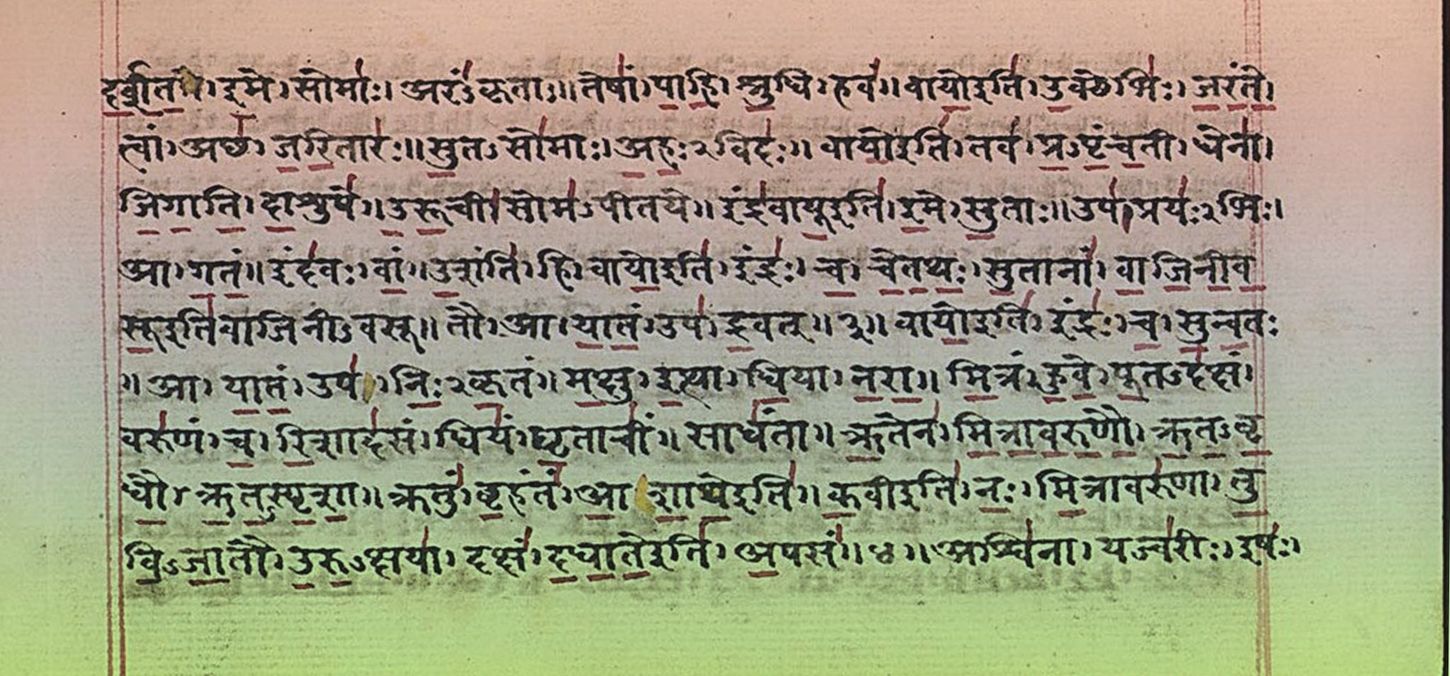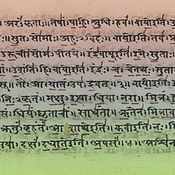
Den Leib dreifach gerichtet, ebenmäßig,
Manas und Sinne im Herzen eingeschlossen,
So mag der Weise auf dem Brahmanschiffe
Die fürchterlichen Fluten überfahren.
Paul Deussen - 1897
If a wise man hold his body with its three erect parts (chest, neck, and head) even 2,
and turn his senses with the mind towards the heart,
he will then in the boat of Brahman 3 cross all the torrents which cause fear.
Max Müller - 1879
| 2: | Cf. Bhagavadgîtâ VI, 13. Samam kâyasirogrîvam dhârayan. Saṅkara says: trîny unnatâny urogrîvasirâmsy unnatâni yasmin sarire. |
| 3: | Explained by Saṅkara as the syllable Om. |
Den Odem hemmend, die Bewegung zügelnd,
Bei Schwund des Hauchs ausatmend durch die Nase,
Wie jenen Wagen mit den schlechten Rossen (Kâth.3,4).
So fesselt ohne Lässigkeit das Manas!
Paul Deussen - 1897
Compressing his breathings let him,
who has subdued all motions,
breathe forth through the nose with gentle breath 4.
Let the wise man without fail restrain his mind,
that chariot yoked with vicious horses 5.
Max Müller - 1879
| 4: | Cf. Bhagavadgîtâ V, 27. Prânâpânau samau kritvâ nâsâbhyantara kârinau. See Telang's notes, Sacred Books of the East, vol. viii, p. 68 seq. |
| 5: | A similar metaphor in Kath. Up. III, 4-6; Sacred Books of the East, vol. xv, p. 13. |



 Dr. Ronald Steiner
Dr. Ronald Steiner
 Nils Jacob Liersch
Nils Jacob Liersch

Nachrichten und Bewertungen